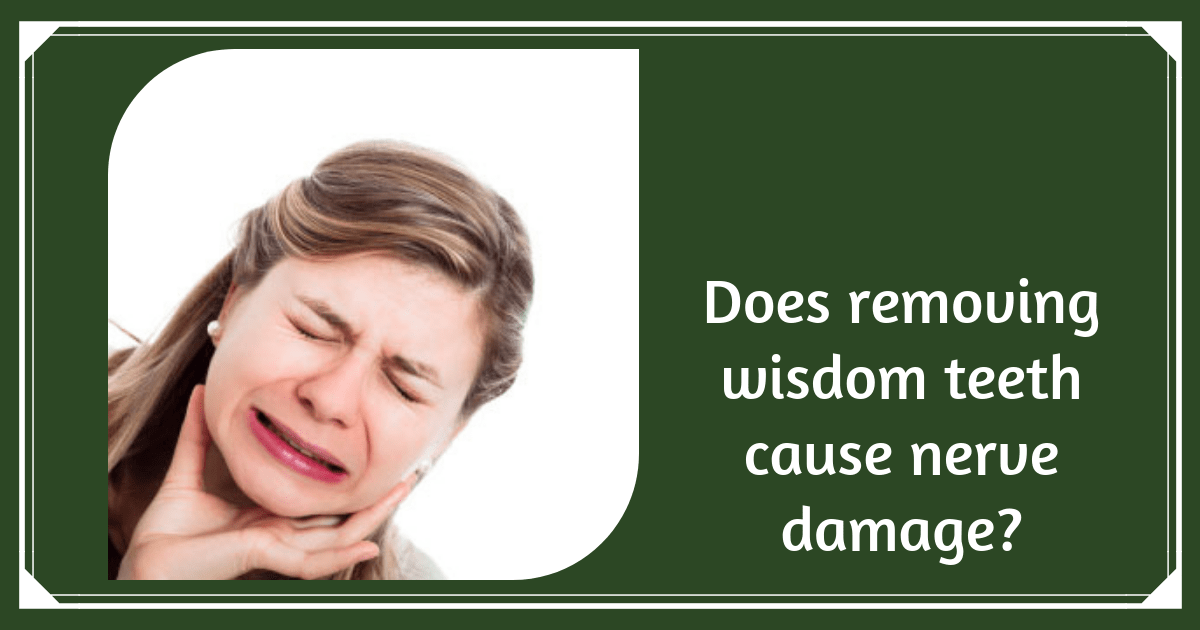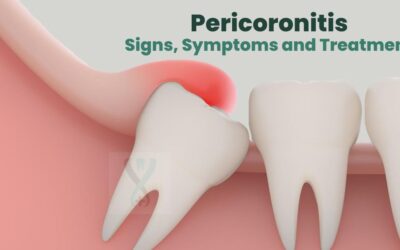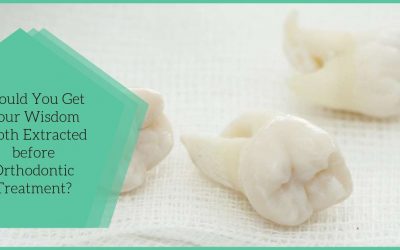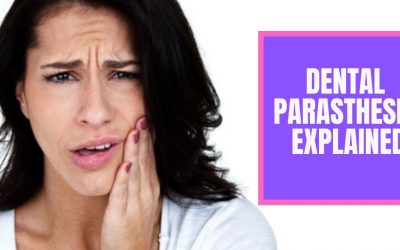Nerve damage after wisdom teeth removal occurs very rarely indeed. The very mention of nerve damage can send some jitters down your spine. But do not worry as these damages carry negligible risks. Still, let us dive inside and understand this rare complication that may occur.
What is Nerve Damage?
Paresthesia generally means numbness or a burning feeling in the hands, arms, legs, feet, in the oral area, etc. It is often a temporary phenomenon when the nerve in the pain region experiences some kind of pressure. But once the pressure dissipates, the pain and the discomfort disappears.
So can paresthesia affect any part of the body?
Yes, that is right. Paresthesia can happen in any part of the body where there is nerve supply. When paresthesia happens in the oral region, it generally refers to as Oral Paresthesia or Dental Paresthesia.
Some details on Paresthesia in Dentistry
Any alteration to the normal oral sensory function in the oral region can be broadly termed as Dental Paresthesia. The oral sensation of numbness in the oral region and other sensations like tickling, burning, pricking and tingling sensation are also symptoms of Dental Paresthesia.
How does Nerve Damage occur in Dental Procedures?
Dental paresthesia is a post-operative complication that may occur in rarest of rare scenario during a wisdom tooth removal procedure. The damage that occurs to the nerves in the dental area is hence referred to as dental paresthesia. The nature of the damage to the nerve is most probably the nerve getting bruised, stretched, irritated or squeezed. The nerves getting completely severed is indeed a very rare event.

Sometimes it can so happen when the wisdom tooth itself impacts the nerve. The wisdom tooth lying on the nerve canal or sometimes lying inside the nerve canal can cause damage to the nerve resulting in dental paresthesia. Though the event of wisdom tooth touching the nerve to cause pain is rampant, the event of impacted wisdom teeth causing paresthesia per se is a rare event.
Dental Paresthesia due to any kind of Growth which is displacing or pressuring the nerve
Dental Paresthesia can also happen due to any growth in the oral region which might displace or exert some kind of pressure on the nerve present in the oral region. Growths like a simple cyst, or any kind of tumor can exert pressure on the nerves. The sensory impact created by such an impact is a kind of dental paresthesia.
Which nerves are damaged to cause Dental Paresthesia?
There are two nerves that lie in close proximity to the third molars and the second molars. The first is the mandibular nerve and the second is the lingual nerve.
The mandibular nerve runs the entire length of the lower jaw on the cheek side. It branches and runs to the chin area and the lower lip area. Similarly, the lingual nerve runs along the lower jaw on the tongue side. The lingual nerve is actually a branch of the mandibular nerve.

The nerve damage after a wisdom tooth extraction is a rare event. But reports show that it occurs more on the inner or tongue side. It estimates that 70% of the time, it is on the inner tongue side.
Under what circumstances does the nerve gets damaged during wisdom tooth removal
There are a few instances where the nerve damage can happen during wisdom tooth removal.
– When the primary nerve and the root of the tooth to be extracted lie in close proximity the damage to the nerve can likely happen.
– Wisdom teeth are multi-rooted and fully-formed roots with curvatures can make extraction procedure a bit hard and challenging.
What patient experiences when such dental paresthesia or nerve damage occurs?
The patient cannot experience anything during the wisdom tooth removal procedure. Nerve damage can be sensed by the patient only days after the extraction procedure is complete. It is indeed one of the complications albeit rare.
The patient typically feels a reduced or total loss of sensation in the area that has been affected. The feeling would be very similar to the numbness the patient had felt when local anesthesia is administered. The feeling would be a myriad sensation that can be a pain or loss of taste and touch in that area. Some people report a sort of tingling sensation.

Such nerve damage does not affect muscle function. For that matter, it does not affect the patient’s jaw functioning or anything at all. Hence the patient need not panic at all.
Solutions to dental nerve damage due to wisdom teeth removal
The sensations automatically subside as days pass by. For some, it subsides in a few days or few weeks and for others, it subsides in a few months.
Whatever is the case, nerve damage due to wisdom teeth removal is an extremely rare event and non-recovery from the sensations it brings about is, even more, a rarity.
Dental Paresthesia in Modern Dentistry
The instances of dental paresthesia due to nerve damage have come down drastically in this digital age. Most dentists carry out dental surgeries or wisdom tooth removal after carefully studying the full mouth digital x-ray images. These advanced digital images show the dentists where the nerves are running. Such developments in the field of dentistry have helped in the drastic reduction of nerve damage and the subsequent dental paresthesia.
Should we fear nerve damage and not get the wisdom tooth removed?
That definitely is not a solution. Any procedures, medical or surgical carry some amount of risk. Since the benefit of wisdom teeth removal far outweighs the minuscule risk percentage of the nerve damage, it is worth going in for removal of impacted wisdom teeth than risk having it. It may be noted that all wisdom tooth may not be impacted.
Dr Sravanthi’s Advice on Dental Paresthesia caused by nerve damage
Digital X-rays have the ability to show how wisdom teeth are emerging in adolescent children. They can tell the dentists with precision whether the wisdom teeth will emerge at all, or if they will impact on emerging. So Dr Sravanthi, the top dentist in India tells us that if the signs of wisdom teeth impacting are present, it is better to remove them when the patient is young. The instances of nerve damage are further negligible in the younger population and hence the suggestion.




